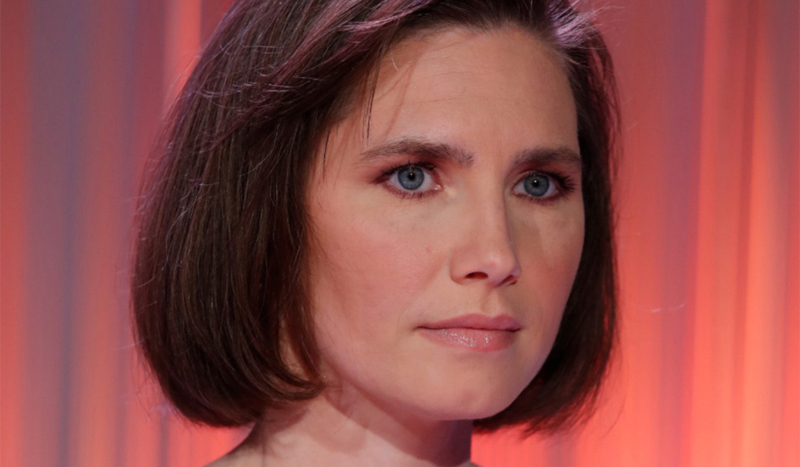
C103 Cork / Facebook
CV NEWS FEED // Amanda Knox, an American woman imprisoned and later exonerated in the 2007 murder of her college roommate in Italy, has revealed that a Catholic priest played a pivotal role in restoring her hope while she was behind bars.
When she was a 20-year-old student studying abroad in Perugia, Knox was arrested after her British roommate, Meredith Kercher, was found stabbed to death. Even though a man, Rudy Guede, was eventually convicted of the murder, Knox spent years entangled in a legal nightmare and was not fully exonerated until 2015.
Knox recounted her experience in her new book, Free: My Search for Meaning, which explores her emotional and spiritual journey during and after nearly four years in an Italian prison.
Knox told Fox News that a Catholic priest named Fr. Saulo Scarabattoli, chaplain of Cappanne prison where she was held, became her best friend during her incarceration.
“He was a good man, a friend and a philosopher,” Knox said. “He was the family who was there for me in prison when the rest of my family couldn’t be physically there with me.”
Her time behind bars was marked not only by emotional turmoil but also real danger. Knox described to Fox News the fear she felt around male guards who she said tried to take advantage of her and the hostility she encountered from others who saw her only through the lens of public suspicion.
In that environment, Fr. Scarabattoli’s presence stood out. Unlike those who treated her with judgment or contempt, he extended a hand of genuine friendship.
“He saw my humanity,” she told Fox News. “And he genuinely wanted to spend time with me.”
Knox, who describes herself as an atheist, detailed the contrast between Fr. Scarabattoli’s compassionate presence and the judgmental response she received from a nun early in her imprisonment. When Knox said she wasn’t religious, the nun told her she was “no better than an animal without God.” Fr. Scarabattoli, however, offered Knox an opportunity for genuine conversation.
“He spoke to me in terms of his ideology and his faith, but there were truths in what he said,” she shared with Fox News. “It would shift my perspective from one of utter despair to one of hope. And on days when I didn’t have hope, he showed me how to find value in the experience that I had. The idea that if you pray to God for strength, he doesn’t give you strength, he gives you an opportunity to be strong — that resonated with me.”
Fr. Scarabattoli invited Knox to play the guitar during Mass, which enabled her to reconnect with a part of herself that had been buried by isolation. She began practicing hymns in his office and playing them on Saturdays during Mass.
Their friendship expanded to music, language, and shared conversation. Fr. Scarabattoli taught her piano on a small electronic keyboard and introduced her to Latin phrases. Through it all, Knox said, he never pressured her to convert or believe — only to reflect.
“[He] never judged me, never told me who I was, even as the world called me a monster,” she wrote in her book, according to Fox News. “I felt supported by him in cultivating a mindset of compassion and empathy and gratitude, that it was this mindset that would allow me to understand what had happened to me.”
She praised Fr. Scarabattoli in her book’s dedications, thanking him “for holding my hand when no one else could.”
Though she is still an atheist, Knox said she found enduring wisdom in the Gospel through her conversations with the priest.
“[Fr. Scarabattoli] taught me to value much of the wisdom in the teachings of Jesus,” she wrote in her book. “Turning the other cheek, the golden rule, a radical refusal of judgment, an acceptance of all people — high and low, sinner and saints. No one deserves God’s grace, and yet, it is there for everyone.”
Knox was freed by an appeals court in 2011 and returned to the United States, where she eventually married and became a mother of two, according to Fox News. She now serves as a board member of The Innocence Center and co-hosts a podcast with her husband called Labyrinths, which explores the emotional toll of high-profile cases.
In March 2015, Italy’s highest court definitively exonerated Knox of the murder of Meredith Kercher. The European Court of Human Rights later ruled that Italy had violated Knox’s rights as a vulnerable foreigner during the police investigation.

